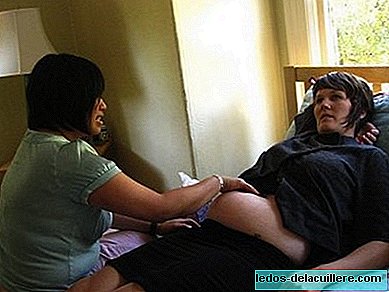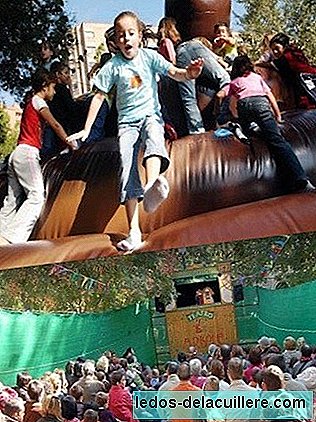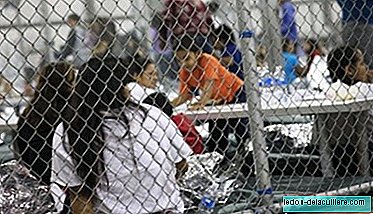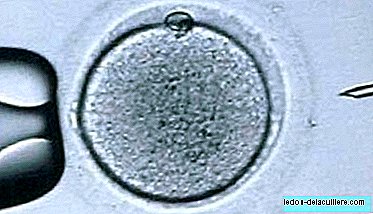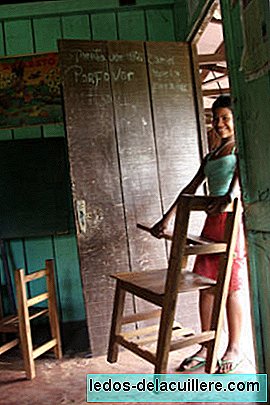
Today is the Literacy Day, and this year takes place under the motto 'Literacy and Peace', emphasizing the connection between unstable democratic systems, conflicts and lack of literacy.
The number of illiterate people has declined in the last decade, but there are still (according to UNESCO) 793 million people who can't read or write, of which 64 percent are women and girls, who lack the basic knowledge of reading and writing. A person is illiterate when 'he cannot read or write a short sentence about his daily life'.
On a specific date we also want to tell you about an educational experience that has reached the farthest corners of Guatemala through the radio. According to the report 'Complete the School. A Right to Grow, a Duty to Share 'of UNICEF / UNESCO, in Latin America and the Caribbean there are approximately 117 million children and adolescents of age to attend basic, primary and secondary education. Some 6.5 million of them do not attend school and 15.6 million attend it dragging failures and signs of inequality expressed in two or more years of grade-age lag or school lag.
In recent decades, education systems in Latin America and the Caribbean have expanded to receive a huge majority of children and adolescents. Various initiatives have also been launched in the region whose ultimate goal is to improve the quality and equity in education that can address poverty and inequality and, thus, promote social inclusion
However, there are still many pockets of exclusion, current or potential: boys and girls who are late to the educational system, who repeatedly fail, who do not find pedagogical experiences that allow them to develop their abilities and who live in situations of discrimination.
For some boys and girls, this lag process begins in initial education. Attending initial education instead of first grade is a complex situation that suffers 11.6% of this age group to start primary education.
Bernt Aasen is the regional director for Latin America and the Caribbean of UNICEF, who states that 'Education is key to addressing the deep inequities in our region, and therefore we must work from all sectors so that all children and adolescents can complete school'.
The experience of Radio Tezulutlán in Guatemala to literate through the waves
Those societies in which people do not have the capacity to understand the future of the world around them or lack knowledge to claim their rights or strengthen their freedoms as individuals, will be more likely to maintain conflicts because literacy is, on many occasions, peace guarantee
The project takes place in the departments of Alta and Baja Verapaz in northern Guatemala, where more than 50 percent of the population, mostly indigenous, lives in poverty, where the illiteracy rate is around 60 percent and where the Citizen participation is very scarce.

Social exclusion and lack of opportunities have led to drug trafficking, with all its negative consequences, being installed in the area. In addition, in this context of social conflict there are enormous difficulties for human and technical training, and for the population to contribute to building a genuine community social fabric.
So that The radio fulfills a great formative and development function with the purpose of creating a participatory awareness in the environments of the peasantry and stimulating citizen participation and the construction of the social fabric. This service provides a great social service through its programs of human promotion, dissemination and defense of the rights of indigenous peoples, training in agriculture, nutrition, medicine, educational programs, etc.
The diocesan-owned Tezulutlán station has expanded the phenomenon of education through radio in Guatemala, has reached every corner of the country, creating many centers that follow up the groups of people they want, since starting in the first letters, until finishing the formation of the middle level
Tezulutlán carries out a program aimed especially at rural communities, women, youth and children, who are systematically marginalized by state institutions and commercial media.
And also this station it is the alternative to other pirate chains financed by corrupt politicians, drug traffickers and fundamentalist sects that call their radio stations "community radios", although they serve particular interests, undermining the dignity of indigenous peoples and favoring the loss of their cultural, human and spiritual values.
Radio Tezulután has requested the support of Manos Unidas to carry out a project that aims to strengthen the station, to further influence the integral development of the population, training its listeners on issues such as the defense of human rights, gender equity, respect for ethnic identities, preservation of the environment, literacy and education.
Images | UNESCO, Manos Unidas More information | UNESCO, United Hands on Peques and More | It is necessary to prioritize education as a main part of the humanitarian response. The Global Campaign for Education claims that education is a fundamental right and is essential to break the circle of poverty


